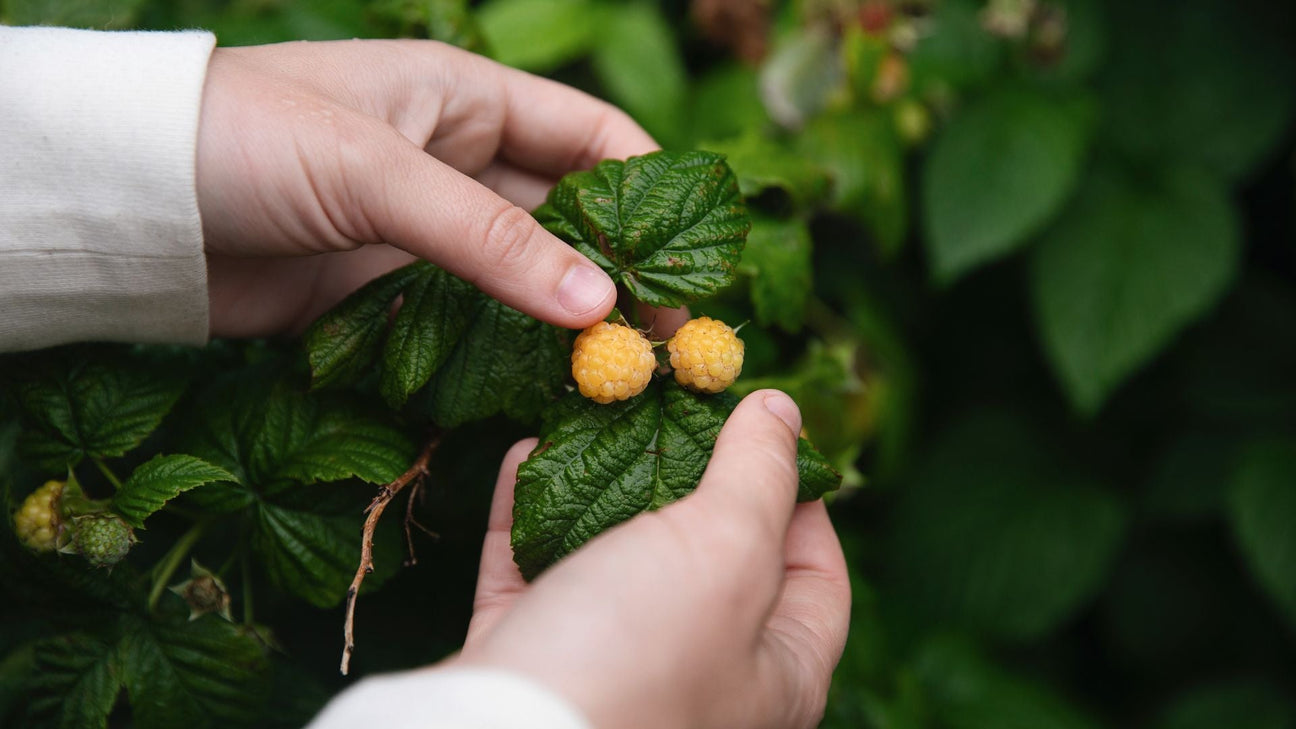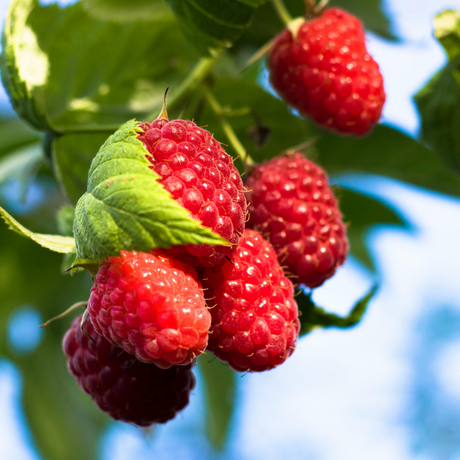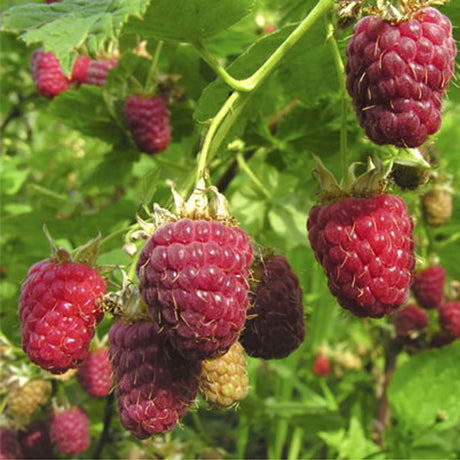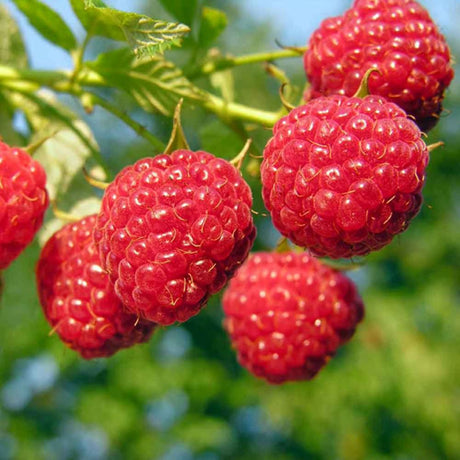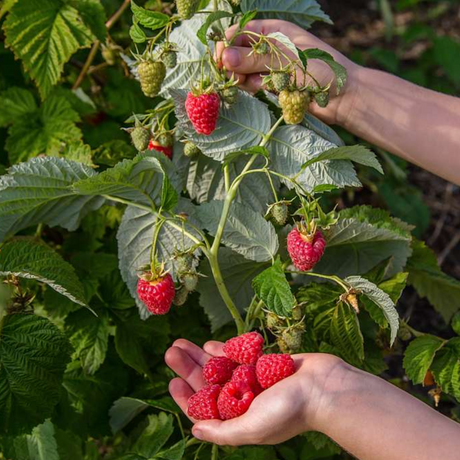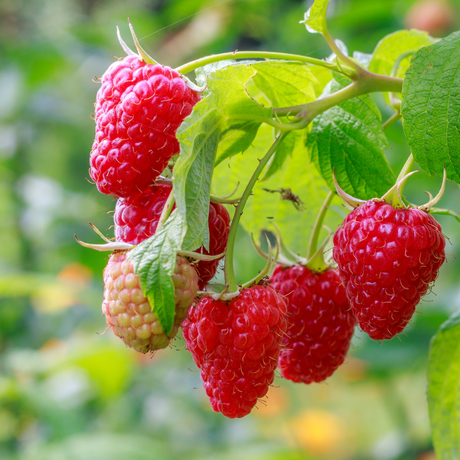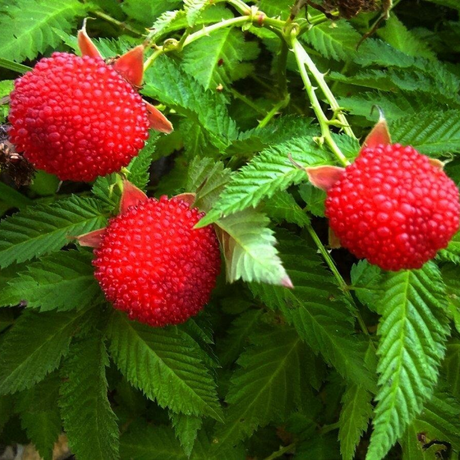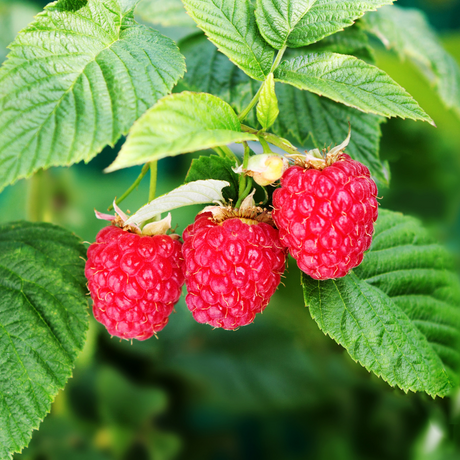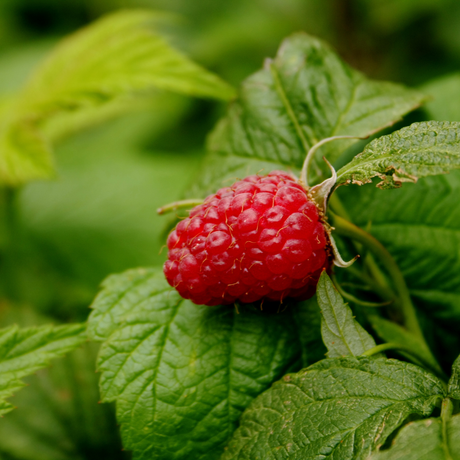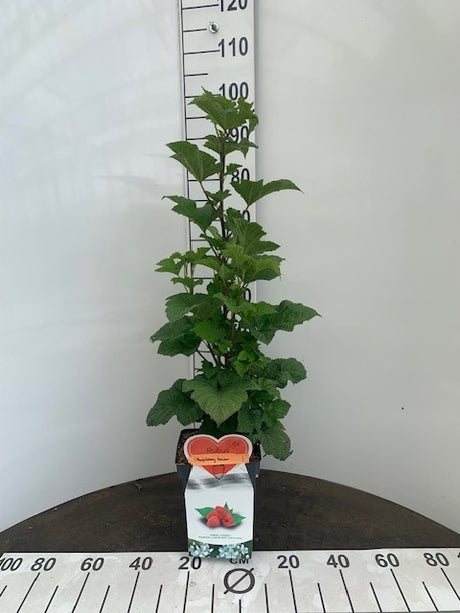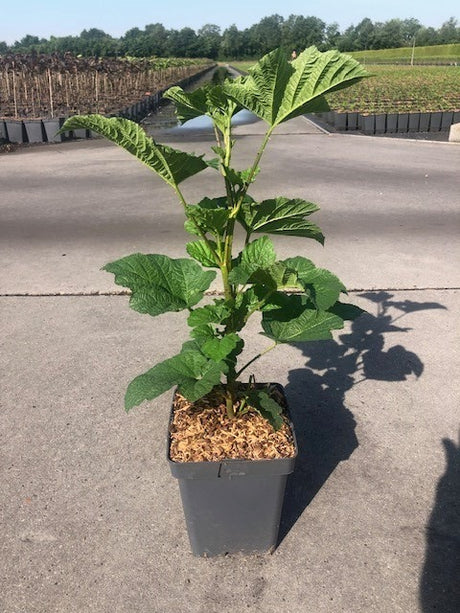Summer raspberry 'Schönemann' - Late - Bare root
Regular price €7,88Unit priceUnavailableAutumn raspberry 'Autumn Bliss' BIO - Late
Regular price €10,86Unit priceUnavailableSummer raspberry 'Golden Everest' BIO - Late
Regular price €10,86Unit priceUnavailableSummer raspberry 'Willamette' BIO - Mid-season
Regular price €10,86Unit priceUnavailableAutumn and summer raspberry 'Twotimer Sugana Red®' BIO
Regular price €10,86Unit priceUnavailableBlack raspberry 'Black Jewel' BIO - Late
Regular price €10,86Unit priceUnavailableSummer raspberry 'Willamette' BIO
Regular price €10,86Unit priceUnavailableStrawberry Raspberry - Bare Root
Regular price €7,88Unit priceUnavailableAutumn raspberry 'Autumn Bliss' BIO
Regular price €10,86Unit priceUnavailableAutumn raspberry 'Autumn Bliss' BIO
Regular price €7,88Unit priceUnavailable- Sold out
Late summer raspberry 'Golden Everest' BIO
Regular price €7,88Unit priceUnavailable - Sold out
Black Raspberry 'Black Jewel' BIO
Regular price €7,88Unit priceUnavailable - Available from September 2025Sold out
Raspberry tree Rubus i. 'Raspberry Tower in 5L pot
Regular price €14,83Unit priceUnavailable
Raspberry plants in pictures
Ruud shows how he grows various berries and grapes in his garden.
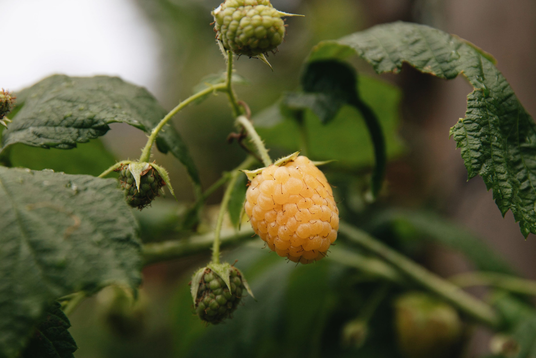
Also read our small fruit growing guide.
You may also like
View allBuying raspberry plants: from garden to table full of flavour
Raspberries are not only irresistibly delicious, they're also easy to grow yourself. Raspberry plants are hardy and can therefore easily survive even cold winters. Thanks to their compact growth, raspberry plants are ideal for small gardens and even fit in smaller gardens, raised beds, or large pots. With proper care, raspberry plants will yield a bountiful harvest for years to come. At Plukkers.com, you'll find strong, organic plants that suit your garden, taste preferences, and variety selection.
Why grow raspberries?
- Fresh and healthy : Raspberries are packed with antioxidants, fiber, and vitamin C. They're one of the tastiest fruits to grow yourself.
- Long harvest season : By combining summer and autumn raspberries, you can pick from June to October.
- Picking fun for young and old : The plants are easily accessible and perfect for children.
- Low maintenance : Raspberries are easy to grow thanks to minimal maintenance. An annual pruning keeps the plants in top condition.
Summer raspberries or autumn raspberries?
- Summer raspberries bear fruit on the previous year's wood, usually in June and July. This means that the fruits develop on the old branches the following year, while new branches and different types of branches develop each year.
- Autumn raspberries bear on young wood, with a harvest from August until the first frost.
By planting both varieties in your garden, you extend the harvest period and spread out the tasty rewards. Various types of raspberries are available, including red-fruited and yellow varieties. Yellow raspberries are less attractive to birds than red ones, meaning they stay on the plant longer. The different varieties differ in flavor, harvest time, and growth habits, so choosing a suitable variety is important for your garden and climate. The scientific name for the raspberry is raspberry Rubus, and the blackberry also belongs to this family; both varieties share similarities in growth and care. Raspberries bloom in early summer with white flowers, after which the fruit develops. For good fruit development, a location in full sun is essential. Sweet raspberries are known for their delicious flavor.
Our range of raspberry bush plants
-
Raspberry rubus 'Autumn Bliss' BIO (autumn raspberry)
This variety produces firm, large fruits with a full flavor. It's ideal for both fresh consumption and processing. Autumn Bliss grows best in a full-sun location for optimal fruit production. - Raspberry Rubus 'Willamette' Organic (summer raspberry)
Willamette is an early-ripening variety with dark red, aromatic fruits. The fruit of this raspberry is juicy and richly flavored. This variety is reliable and robust. - Raspberry rubus 'Tulameen' BIO (summer raspberry)
Tulameen is a late-summer raspberry variety with large, glossy berries and excellent flavor. The fruits are firm and particularly suitable for those looking for a suitable variety for sweet raspberries. - Raspberry Rubus 'Golden Everest' Organic (autumn raspberry)
Golden Everest is a yellow autumn raspberry variety known for its sweet berries and delicious flavor. The large, juicy fruit has a delicate, sweet taste and is perfect for lovers of unusual raspberries.
Caring for raspberry plants and new branches
- Planting time : The best time is autumn or early spring. Later in the year is also fine, but you'll need to water more during dry spells.
- Location : Sunny and airy – the more sun, the sweeter the berries.
- Support : Use a trellis or wires for vertical growth.
- Pruning : Prune summer raspberries after harvest, autumn raspberries completely in February.
- Fertilization : Feed annually with compost or organic fertilizer for a rich harvest.
Health: The Benefits of Raspberries
Raspberries are practically the perfect combination of delicious and healthy—and that's great news for both your taste buds and your body. If you plant them in your own garden, you'll soon be able to enjoy fresh raspberries packed with vitamins, minerals, and antioxidants. These little powerhouses have that wonderfully sweet flavor we all love, and you can use them in so many ways: just pick them fresh from the bush (delicious!), stir them into your salad, or toss them into a smoothie.
Your raspberry bush is actually a true all-rounder – not only does it provide you with a bountiful harvest of those sweet berries, but it also helps you maintain a healthy diet. Raspberries are packed with fiber, which keeps your digestion moving and helps you maintain a healthy weight. And those antioxidants? They protect your body from those pesky free radicals and ensure your immune system stays strong and your skin healthy.
You don't need to be a gardening genius to get the most out of your raspberry bush. Simply prune away those old canes in late winter or early spring – this will give the new shoots plenty of room to produce a bountiful harvest later in the season. Water your plants regularly (especially after a dry spell) and give them an annual application of organic fertilizer. Then they'll grow like crazy, and you'll have an abundance of delicious raspberries.
Growing your own raspberries means you'll always have fresh, healthy fruit at your fingertips. It's a truly enjoyable hobby that not only yields a bountiful harvest but also contributes to a healthier lifestyle. Get started today – plant some raspberries and discover for yourself how delicious and nutritious they are!
Seize the day – and your own raspberries
Growing your own raspberries not only results in a healthy harvest, but also the joy of picking sweet raspberries from your own garden. You experience the growing process, learn how to prune, and appreciate the work you've done. And when you pick and taste that first sweet raspberry of the season, you know: this is pure nature, just as it should be.

